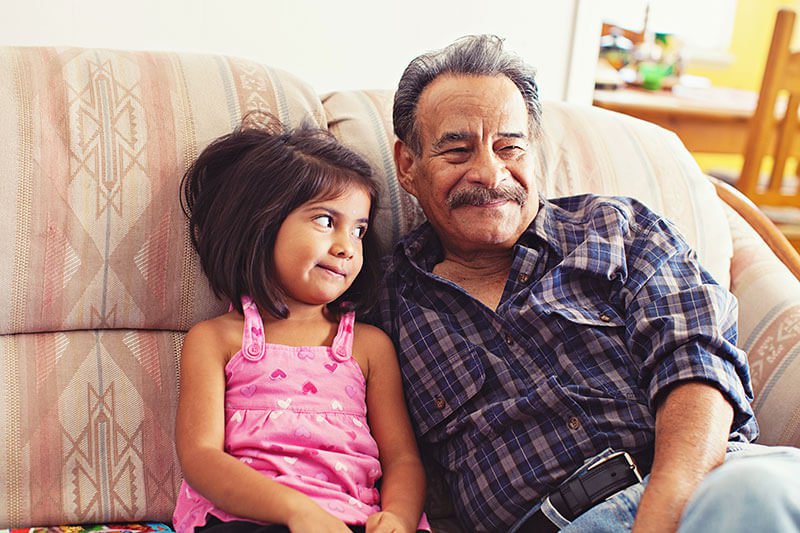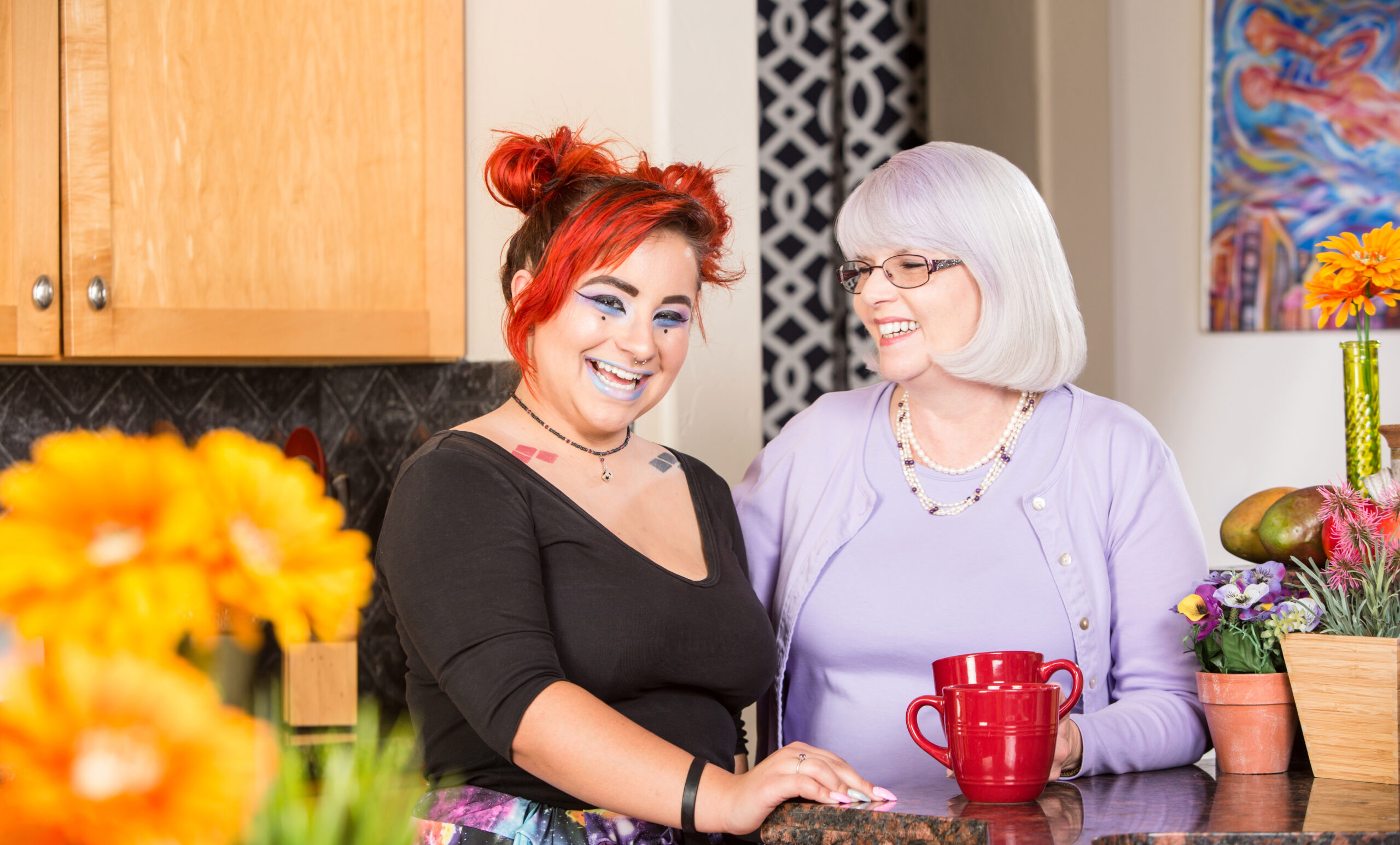About Relative Caregiving

The Los Angeles County Department of Children and Family Services operates from a family-centered approach, understanding that it can be emotionally difficult for a child to be separated from their parents. When a child must be removed from their home, DCFS makes every attempt to place children with a family member or a non-related adult close to the child (“non-relative extended family member”) to provide as much stability and familiarity for the child as possible.
The resources below are only available to relative caregivers. However, relative caregivers also have access to most Foster Parent Resources offered by DCFS.
Foster Parent Resources
Emergency Placements

In many instances, relatives are asked to care for a family member’s child because of emergency situations. These unexpected circumstances can be challenging. If you receive a call from DCFS about placing a young family member in your care, here are some things to expect:
An in-home inspection
A social worker will determine if your home and grounds are free of conditions that pose a risk to the health and safety of the child or children.
Criminal records check
A quick-results criminal records check will be completed for every adult living in the home through the CLETS database. After that is complete, Livescan fingerprinting must occur within five days of the placement.
If the CLETS check shows any criminal convictions for any adult in the home, a child cannot be placed on an emergency unless the conviction is eligible for exemption. Arrests do not require an exemption, but they might be cause for a delay in placement until more information is gathered.
Check for prior child abuse or neglect
All adults living in the home will be searched on the Child Abuse Central Index (CACI). The social worker and/or the court might decide not to make an emergency placement if the CACI report raises any child safety concerns.
Begin the Resource Family Approvals Process
Relative caregivers who accept a child into their home on an emergency basis must become approved resource families to remain caregivers for their family member. This process must begin within five days of a child being placed in their home.
Learn more about the RFA Process.
Requesting Placement of a Child

If a child in your family or extended family is currently living in foster care and you would like them to be placed with you, you may request a placement through the following process:
Step 1
Inform the social worker
It is important that DCFS knows you are interested in caring for the child in your family. The law requires county agencies to give first priority to relatives and extended family members. In some cases, there may be more than one social worker assigned to the child’s case. Make sure to inform each one, as they do not always share information.
If you do not know who the social worker is, call the Kinship Resource Center at (888) 694-7263 and tell them you are a relative for a child who has been removed from their home and ask to contact their social worker. You will need the child’s full name and their birth date.
Step 2
Begin the RFA Process
If you think that a child in your family might come into foster care and you want to be considered for placement, to become an approved Resource Family and make the transition as smooth and quick as possible.
Step 3
Come to the child’s court hearing
You may not be allowed in the court room, but you can wait to speak to the attorney representing the child and request a Relative Information Form (called a JV-285) at the court. This form allows you to give the court information about the child, and to inform the court that you would like the child to live with you.
- If your requested placement is not assessed in a timely manner, you can request a WIC 361.3 hearing in court to move the process along.
- If the child is already placed somewhere else, you can petition the court for a WIC 388 hearing, which is a request to change the current placement of the child.
Financial Assistance
When a child is placed in your home, you will begin receiving a monthly stipend to cover the cost of care for that child. If you are not yet approved as a Resource Family but a child has been placed in your home, you will receive temporary funding for up to a year, or until you are approved. Learn more about Resource Family Funding by visiting the links below.
If you are not receiving funding or are receiving the wrong amount of funding, please call the Resource Family Helpline at 800-697-4444 or email FCHL@dcfs.lacounty.gov and eligibility workers will be able to look up your case and payment status.
Relative Support Services

If you are a relative caregiver or non-relative extended family member who could use some extra support, there are community organizations in your area that can help. These organizations can provide services to help you better meet the needs of the children in your care. Some of these services include:
- Support Groups
- Caregiver Mentoring
- Child Care Referrals
- Respite Care Referrals
- Tutoring Referrals
- Legal Assistance Referrals
|
- Food and Clothing Referrals
- Educational Opportunities
- Outdoor & Recreational activities & special events
- General Counseling
- Need Based Financial Assistance
- Help with DCFS questions
|
Find the Relative Support Service provider in your Service Planning Area (SPA) to call them directly, or call the DCFS Caregiver Warmline at (877) 323-7165 .
Find your Service Planning Area
Relative Support Services Directory
Support and Advocacy

Family Urgent Response System (FURS)
FURS includes a statewide hotline as well as local mobile response teams to provide immediate trauma-informed support to current and former foster youth and their caregivers. For 24/7 phone or in-person support, you can call or text FURS at 1-833-939-FURS (1-833-939-3877) for any issues, big or small.
Both the statewide hotline and local mobile response teams are available 24/7/365.
FURS Flyer in English Folleto de FURS en Español
Alliance of Relative Caregivers
Alliance of Relative Caregivers ARC offers a range of supportive services for relative caregivers including free groups led by peer support facilitators and help navigating schools and/or an IEP for a child with special needs. For questions please email Program Coordinator Sylvie de Toledo or call (818) 789-1177.
Alliance of Relative Caregivers
ONEgeneration
For grandparents (and other relatives) who are caring for their children’s children, navigating the DCFS process and gaining access to resources can be particularly difficult.
ONEgeneration’s Grandparents as Parents (GAP) program advocates for caregivers when they may become overwhelmed. GAP provides connection and support, training, and counseling, breaking the isolation that relative caregivers face when parents can no longer parent. Services offered by GAP include support groups in English and Spanish, case management, concrete goods (diapers, clothing, shoes, strollers, car seats and more), court navigation support (assistance in court and completing court documents) and more!
Call (818) 264-0880 or email GAP@ONEgeneration.org to attend an upcoming support group meeting and get connected to an array of supportive services.
Grandparents as Parents Website Court Navigation Flyer
The Community Coalition
The Community Coalition helps to strengthen and unite families including those who are directly impacted by the Child Welfare system. Offering a support group for relative caregivers that reside in the SPA 6 service area, the Community Coalition’s ‘Kinship in Action’ program seeks to give relative caregivers a voice, increased awareness and connect them with resources and support. Contact Enrique Gaspar at (323) 750-9087.
The Community Coalition
Advocates 4 Family Caregivers
Advocates 4 Family Caregivers, based in Carson, works throughout the county and offers support groups, tangible goods, Notary services, and assistance with Child and Family Team Meetings, IEPs, and visitations. They can also assist with the expungement or dismissal of criminal records. Contact Betty Halle at 310-538-0555 or Betty@A4FC.org .
ROCK – Raising Our Children’s Kids
ROCK services the Santa Clarita Valley and Antelope Valley with a team of Kinship caregivers with over 23 years of experience. Some of the support services available include placement appeals, mediation, attendance at Court, filing Court forms such and probate guardianship. They also partner with the Santa Clarita Valley Senior Center to hold weekly support groups. Contact Cheral Hymen at (661) 478-1881.
The Kinship Association
The Kinship Association gives relative families a voice by offering supportive services for families in the Antelope Valley. They offer support groups, monitors visits, provides necessary essentials, referrals and more including a clothing closet for youth. Call (661)794-2076.
The Kinship Association
Tangible Goods
Foster Love LA
For relative families faced with an emergency placement, Foster Love LA supports families by hand delivering some of the essentials. Foster Love LA keeps a variety of goods on hand including clothing in sizes 0-5T which can be requested via the request form on their website. In addition to tangible items, Foster Love LA hosts quarterly events for “foster moms” and helps identify link families to appropriate resources.
Foster Love LA
James Storehouse
James Storehouse provides support to families with infants through teens. Based in Ventura County, they also serve Los Angeles County families and offer an in-house boutique for free shopping, along with group birthday parties and back-to-school shopping events. Referrals are made by through the social worker and families are then contacted for an appointment.
James Storehouse
Hope in a Suitcase
Offering a shopping experience tailored to tweens and teens, ‘Hope in a Suitcase’ offers shopping days for youth ages 8-18 where they can shop for new clothing ranging from casual to business attire, essentials and even books, and all for free! There are also shopping opportunities for transition age youth (TAY).
Hope in a Suitcase
Education
Foster and Kinship Care Education
Los Angeles County has 17 community colleges that provide “Foster and Kinship Care Education” to support you and your kin and help develop skills and abilities to provide safe, healthy and nurturing home environments for children in your care.
These community colleges include:
Antelope Valley – Cerritos – Citrus/Chaffey/Mt. San Antonio – College of the Canyons – Compton College East Los Angeles – El Camino – Long Beach City – Los Angeles City – Los Angeles Harbor – Los Angles Mission – Los Angeles Pierce – Los Angeles Southwest – Los Angeles Trade Tech – Pasadena City – Rio Hondo – West Los Angeles
Contact the Kinship Resource Center for more information at (626) 430-3200.






